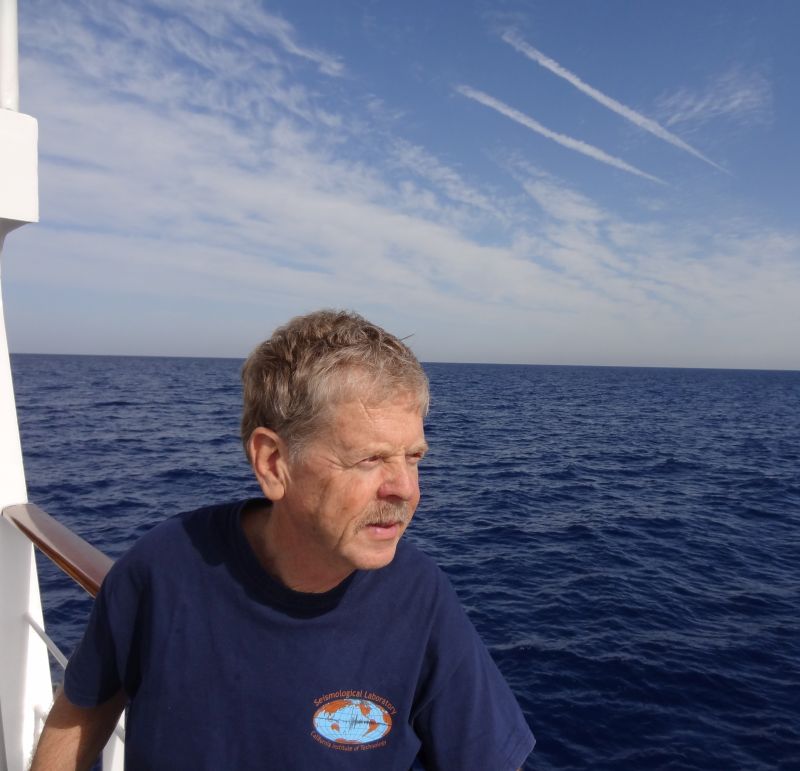A new realm of deep-sea exploration is opening up with the arrival of Israel’s first advanced underwater robot, the SAAB SEAEYE ROV
For centuries we have depended on the ocean for food, transport and our livelihood, with ocean-based businesses contributing more than $500 billion to the global economy.
Today, our seas and oceans are serving as increasingly viable sources of energy with their vastly untapped natural gas reservoirs and potential for renewable resources, such as wind, wave and tidal power. Yet, we have barely begun to scratch the surface of deep-sea exploration.
The discovery of large gas reserves nearly five years ago off of Israel’s Mediterranean coast captured public attention and spurred the scientific community into deep-sea exploration. Until recently, the technology needed to reach remote and deep-water environments was largely inadequate.
And now a new era has begun. Thanks to the generous support of The Leona M. and Harry B. Helmsley Charitable Trust, the Leon H. Charney School for Marine Sciences will welcome Israel’s first underwater Remotely Operated Vehicle (ROV) at Haifa Bay in Fall 2016. The newly purchased state-of-the-art Seaeye Leopard by Saab is one of the most powerful ROVs in its class.
Outfitted with the most advanced multi-sensory imaging and data collection instrumentation (including robotic arms), it offers exceptional maneuverability - even in strong currents – and can perform delicate sub-sea sample collection tasks and installations while being controlled in real-time by researchers. The ROV is designed to operate at intense pressures for extended periods and at depths of up to 9,800 feet (3,000 meters) below the sea surface. To put these depths into perspective, that’s the length of 16 football stadiums or a 500-story building, where pressure on a single fingernail is equal to 660 pounds (or 300 kg)!
“First and foremost, this powerful ROV will be used for scientific study, education and research to advance our knowledge of the ocean,” explains Prof. Zvi Ben-Avraham, Founding Director of the Leon H. Charney School of Marine Sciences and Head of the Mediterranean Sea Research Center of Israel (MERCI). “It will facilitate studies in a wide range of fields, from diverse disciplines within oceanography, including marine and environmental biology, geology, and geophysics, to the study of maritime civilizations. We also intend to use it to further the national interest in exploring offshore natural gas and deep-sea deposits of methane hydrates and for coastal monitoring operations. It will serve as a platform for testing various technological developments such as underwater propulsion, acoustic sensors, optical imaging systems, robotic manipulators, and as a teaching tool for researchers, students and technicians.”
The new ROV will be maintained by the Hatter Department of Marine Technologies and housed at the Helmsley deep-sea coastal facility located at the Israel Oceanographic and Limnological Research Institute (IOLR) in Haifa’s Shikmona neighborhood. The ROV serves the entire marine research community in Israel through MERCI - a consortium of seven universities, a college and two governmental research institutes, working in partnership under the leadership of the University of Haifa to address an unprecedented array of scientific, technological, economic, security, and environmental challenges and opportunities resulting from the rapid development of the Eastern Mediterranean offshore.
Scientists believe that through ocean exploration we will be able to ‘fill the gaps’ of information needed to better understand ocean dynamics that affect environmental change, which in turn will lead to well-informed policy decisions. Deep-sea exploration may help us predict climate change as well as extreme events such as tsunamis, and could reveal more about the mysterious life forms living in deep waters with therapeutic potential for the development of life-saving drugs and therapies for cancer and other degenerative diseases.
Read more on the Helmsley Charitable Trust
 "The Mediterranean Sea, with its unique marine ecosystem and abundant biodiversity, has been a cradle of world civilization throughout the ages and a focal point for world affairs till today. Almost completely surrounded by land, the Mediterranean is a puzzle of tectonic regimes and a rich basin home to unique maritime species and abundant natural resources just waiting for discovery." - Prof. Zvi Ben-Avraham, Founding Director of the Leon H. Charney School of Marine Sciences at the University of Haifa and Head of the Mediterranean Sea Research Center of Israel
"The Mediterranean Sea, with its unique marine ecosystem and abundant biodiversity, has been a cradle of world civilization throughout the ages and a focal point for world affairs till today. Almost completely surrounded by land, the Mediterranean is a puzzle of tectonic regimes and a rich basin home to unique maritime species and abundant natural resources just waiting for discovery." - Prof. Zvi Ben-Avraham, Founding Director of the Leon H. Charney School of Marine Sciences at the University of Haifa and Head of the Mediterranean Sea Research Center of Israel
- << Prev
- Next

